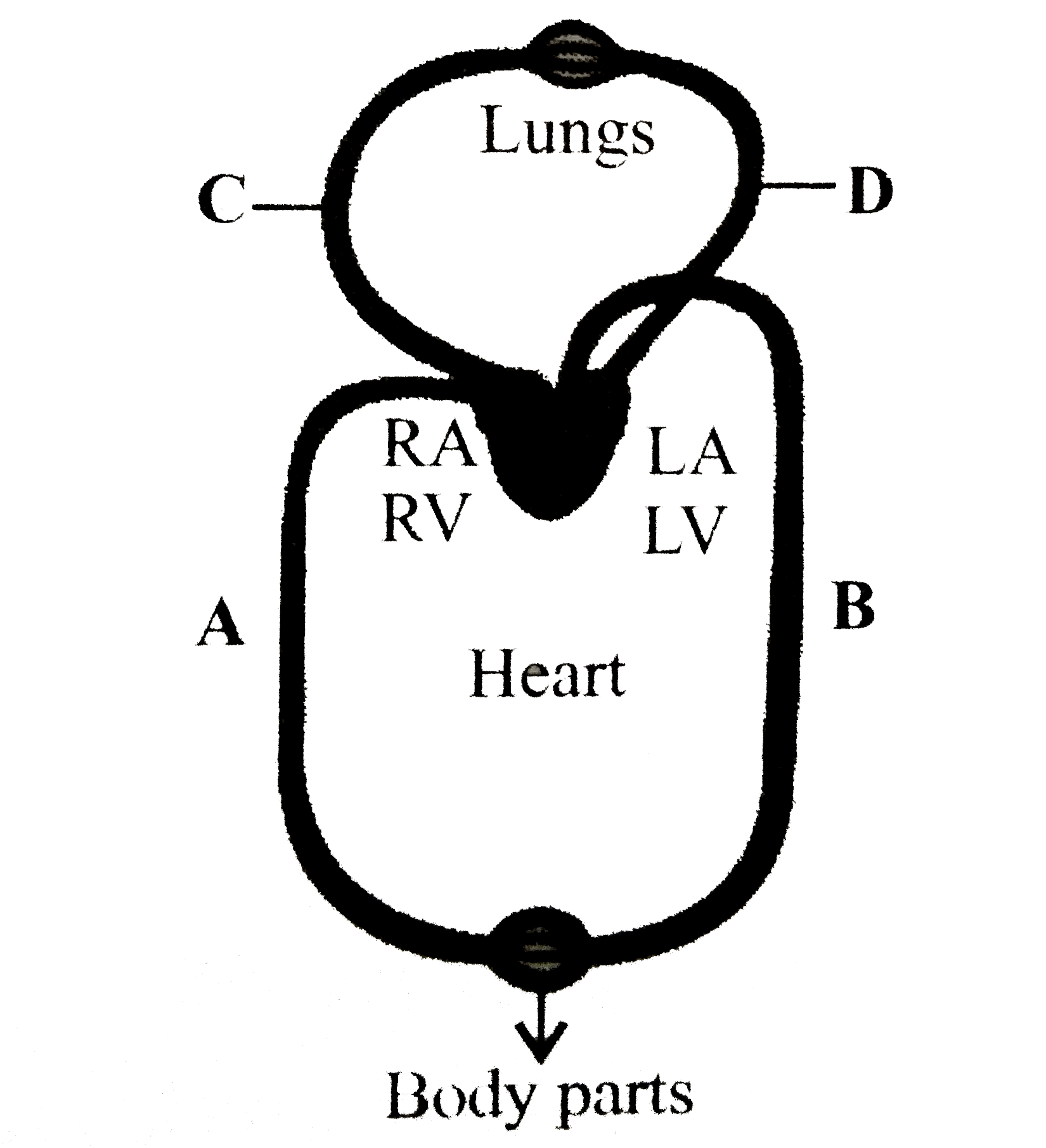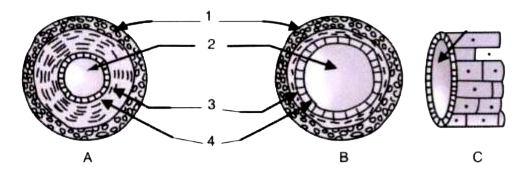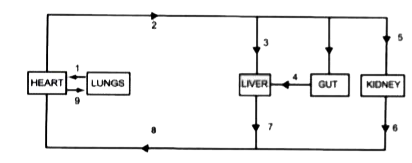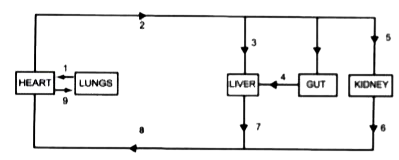Blood vessels through which systemic circulation begins from heart and terminates in heart are A and B respectively. Name the blood vessels A and B
Step by step video & image solution for Blood vessels through which systemic circulation begins from heart and terminates in heart are A and B respectively. Name the blood vessels A and B by Biology experts to help you in doubts & scoring excellent marks in Class 12 exams.
Updated on:21/07/2023Topper's Solved these Questions
Similar Questions
Knowledge Check
Artery is a blood vessel which carries blood
Aaway from the heartBtowards the heartChas deoxygenated blood without exceptionDnone of theseWhat is the nature of blood passing through blood vessels A, B, C and D respectively ?
 AABCDDeoxygenatedOxygenatedDeoxygenatedOxygenatedBABCDDeoxygenatedDeoxygenatedOxygenatedOxygenatedCABCDOxygenatedOxygenatedDeoxygenatedDeoxygenatedDABCDOxygenatedDeoxygenatedOxygenatedDeoxygenated
AABCDDeoxygenatedOxygenatedDeoxygenatedOxygenatedBABCDDeoxygenatedDeoxygenatedOxygenatedOxygenatedCABCDOxygenatedOxygenatedDeoxygenatedDeoxygenatedDABCDOxygenatedDeoxygenatedOxygenatedDeoxygenated
The figures given below are crose-coctions of blood vessels

Identity the blood vessels A B and C.
View SolutionBlood vessel which brings oxygenated blood to left auricle is
View SolutionThe following simplified diagram refers to the outline plan of the circulation of blood in a mammal, Study the diagram and write the number and the name of the blood vessel in each case as mentioned under.

Which vessel begins and ends in capillaries ?
View SolutionThe human ciculatory system can be thought of as a closed system of interconnecting pipes through which fluid is continuously circulated by two pumps the two pumps the right and left verticles of the heart, work as simple two-stroke force pumps. The muscles of the heart regulate the force by contracting and relaxing. the contraction (systole) lasts about 0.2s and a complete systole/diastole (contraction/relaxation) cycle lasts about 0.8s. For flood pressures and speeds in the normal range. the volume flow rate of blood through a blood vessel is directly proportional tot he pressure difference over a length of the vessel and to the fourth power of the radius of the vessel. The total mechanical energy per unit volume of blood just as it leaves the heart is E/V=ρgh+P+ρv2
Q. Why is diastolic blood pressure muchh lower than systolic pressure?
A. because the heart exerts more force on the blood during diastole
B. Because the heart exerts no force on the blood during diastole
C. Because the radii of the blood vessels increase during diastole while the force exerted by the heart on the blood remains the same.
D. Because the radii of the blood vessels increase during diastole while the force exerted by the heart on the blood remains the same.
View SolutionThe following simplified diagram refers to the outline plan of the circulation of blood in a mammal, Study the diagram and write the number and the name of the blood vessel in each case as mentioned under.

in which vessel will the blood carry the most oxyhaemoglobin
View SolutionDuring high blood pressure, regulatinos of heart beat and circulation are controlled by
View Solution
